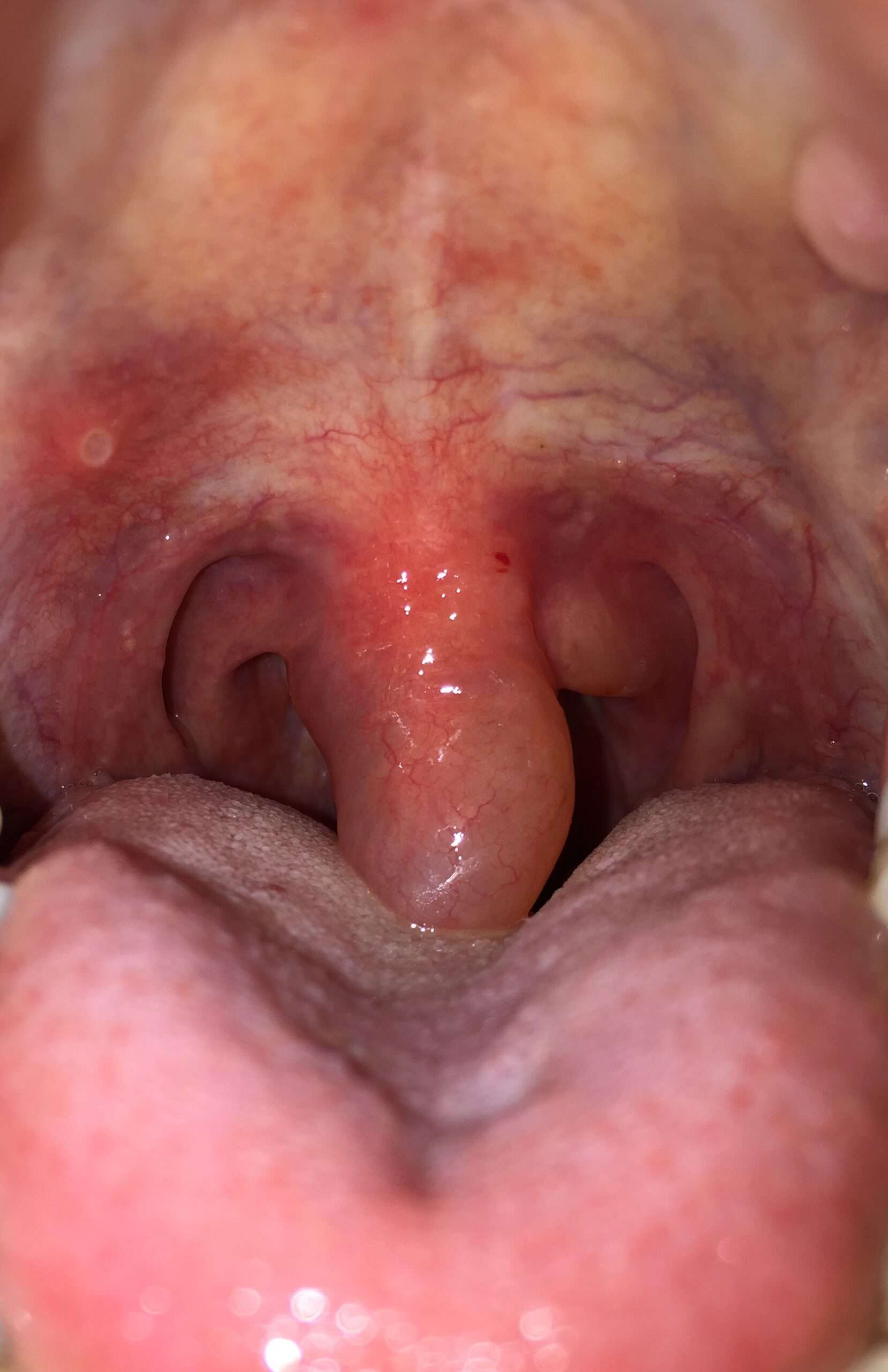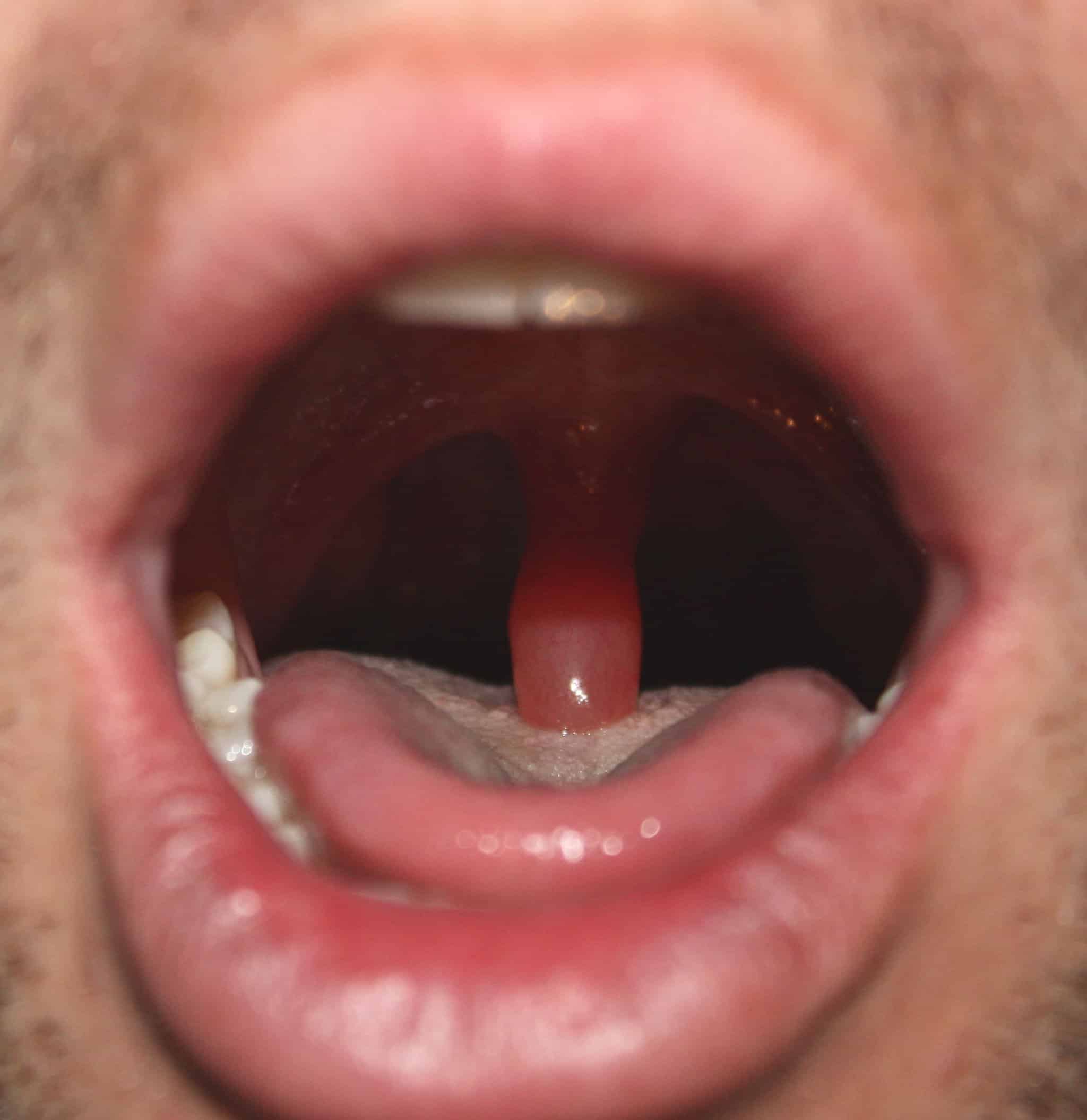Exact Answer: 5 to 7 days after surgery
Tonsillectomy is a surgical process in which the tonsils are removed completely from the back of the throat. This surgery is done to enable peaceful sleeping because tonsils cause loud snoring and to cure frequent infections. Some people are advised not to remove their tonsil as tonsil sometimes protects us from certain infections as they are a part of our immune system. However, after removal, the tonsil area completely heals in about two to three weeks after surgery and a day or two after surgery, swelling is seen to develop in that area. As to why and how long it stays, we will discuss it in this article.

How Long Swollen Uvula After Tonsillectomy?
There is a raw surface in the area, where the tonsil used to be after surgery. It takes 7 to 10 days for the mucus area to heal and therefore there is constant pain in that area for about a week.
| Healing Process After Surgery | Time | What happens |
| Uvula gets swollen | A day or two after surgery | The uvula is a finger-like tissue hanging in the back of the soft palate. It gets swollen after surgery |
| “Eschar” starts falling | In 7 days after surgery | There is an increase in throat pain and your ears begin to hurt. |
| Ear pain subsides | In the second week of surgery | Ear pain can still be felt when you sneeze or yawn. |
| Complete healing | After two weeks of surgery | For most people, the tonsil area completely heals in two weeks. |

The uvula begins to show swelling after a day or two of surgery and lasts for a period of 5 to 7 days. It is said to have resulted from surgical procedures or the disruption of the lymphatic. This can be reduced by drinking plenty of cold liquids. The healing period of the swelling is different for kids and adults. Kids probably take a week to heal but adults take longer. The younger we are, the faster we can recover with less pain than expected.
Why does a Uvula Swell After Tonsillectomy?
After the surgery, swelling is seen in the uvula due to the cauterization in the tonsil blood vessels. The cauterization of the tonsil blood vessels causes the uvula to swell up until the glands develop an alternate drainage pattern. When this happens, patients feel like there is something on their throat or have a “blocked” sensation. A swollen uvula is nothing to worry about but if it produces drools, gagging, or difficulty in breathing, then you have to visit your doctor immediately.

A swollen uvula might stem from the manipulation of the surgery and might go off on its own without us having to worry about it. But in some cases, doctors recommend oral steroids for you to get over it. A swollen uvula can also be caused by the venous supply during the dissection of the tonsils. The swelling can be irritating and might make it hard for you to swallow food but is temporary and will disappear by itself in less than a week. However, if your diet includes hard and spicy food, it is going to worsen your swelling and it might take a longer time for it to heal. Diet is very important in the healing process. Some say that if you cooperate with the treatment, the swelling might even go away in a day or two, with or without treatment.
Conclusion
A swollen uvula is nothing to worry about, and in most cases, you don’t have to contact your surgeon as it is very common. There are many ways to reduce the swelling or the pain such as:
Drinking plenty of non-citrus liquids, placing an ice pack in the neck several times a day, chewing sugar-free gums, and getting a lot of rest in the first two days of surgery.
Most doctors keep you warned of the swelling before you get your surgery done as is expected. Make sure you stick to the recommended diet at least for 10 days after surgery. Sticking to the diet caters to 3/4th of the recovery process.
This is important information. The public must know about this
It is crucial that people know this before getting the surgery
I wish I had known this before getting the surgery
This is a very useful article
This is quite insightful
A great post
I’ve learned something new from this post
I was not aware of this, an interesting post
Thank you for sharing this information
Very interesting
I’ll look for that article, it appears to be a good one
I agree, it is quite informative
I would recommend reading it
This is important, the public needs to be informed
It’s good to have this information available
I can’t believe there is so little information on this subject.
It’s amazing how little information there is on this topic
It’s true, there should be more information out there
I had no idea about this
Very informative post.
Thank you for the post. It was very useful
This is very important to consider before getting the surgery
I’m glad I found out about this before considering this surgery
This article is very relevant